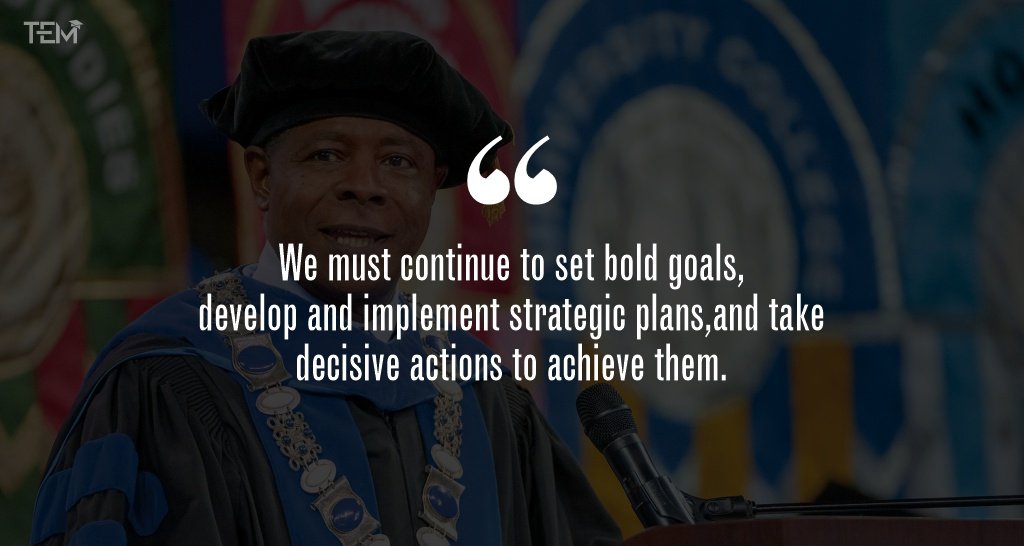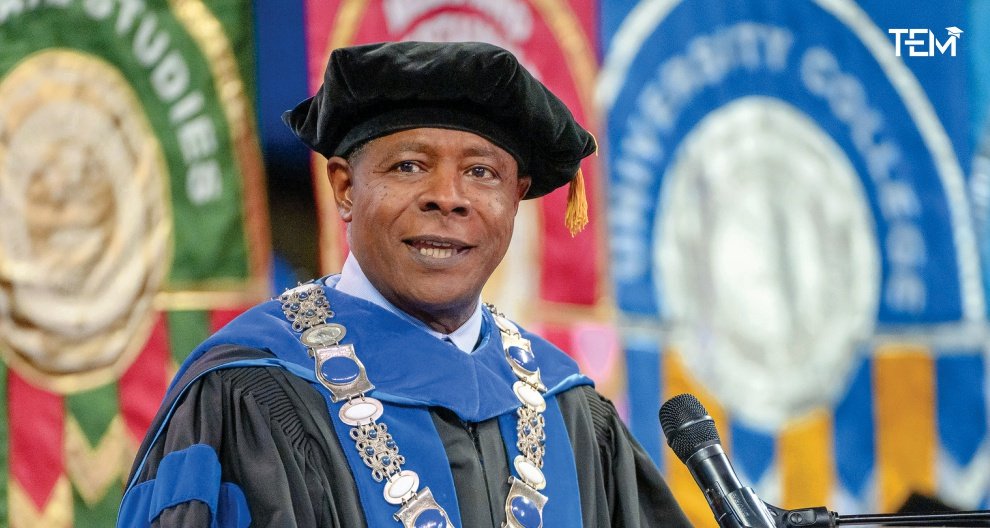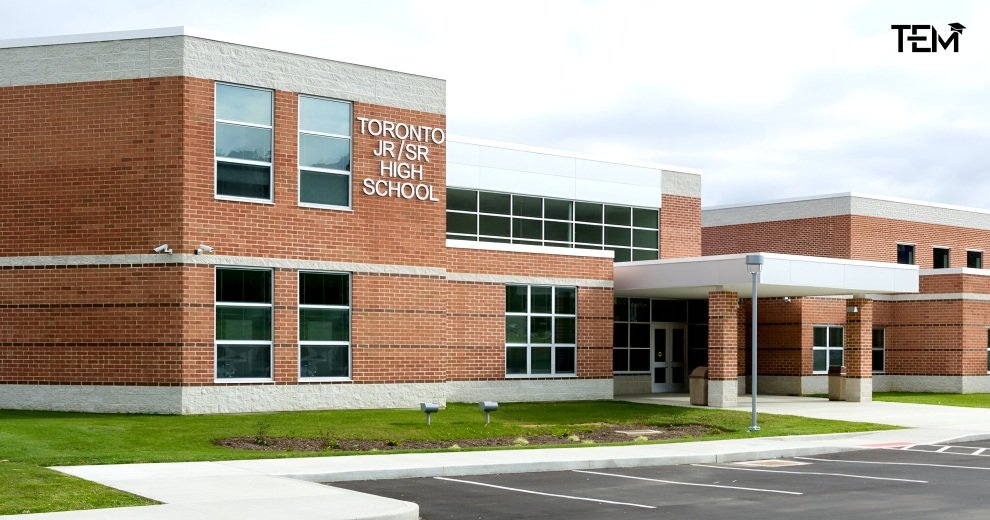Every great institution has a turning point. At Middle Tennessee State University (MTSU), this turning point began in 2001, with Dr. Sidney A. McPhee’s arrival as its 10th president.
MTSU, at that time, was a respected regional institution. It held untapped potential for growth in academic excellence, innovation, and community impact. Over two decades, Dr.McPhee’s leadership transformed MTSU into a national force. Prestigious institutions, including The Princeton Review and The Wall Street Journal, recognized this transformation.
Dr. McPhee’s presidency focuses on purpose, not just growth. Each new building, expanded program, and strategic partnership demonstrates his belief in higher education’s transformative power. His vision extends beyond infrastructure and rankings. He creates opportunities, empowers students, and positions MTSU as a pillar of progress for middle Tennessee and beyond.
This is the story of MTSU under Dr. McPhee: a story of progress, strategic innovation, and dedication to better education and society.
Building a Legacy of Growth and Innovation
Dr. McPhee’s tenure includes notable achievements. The university invested over $1.5 billion in new construction. These investments reshaped the campus with modern facilities and elevated the university’s academic standing.
Today, MTSU includes eight undergraduate colleges offering 200 majors and concentrations across 38 departments. The College of Graduate Studies offers more than 100 master’s and specialist programs and 9 doctoral degrees. Since Dr. McPhee’s arrival, the university has raised admission standards, increased enrollment of high-ability students, and introduced over 40 academic programs, two new colleges, and 20 institutes and centers. This academic expansion reflects Dr. McPhee’s commitment to preparing students for the future workforce. As a result of these efforts, MTSU has earned the Carnegie R2 designation as a doctoral university, which indicates a high level of research activity.
Furthermore, MTSU has secured over $22 million in sponsored project funding, a 75% increase since 2023. This funding supports research addressing practical challenges, which Dr. McPhee says underscores the university’s relevance and leadership in higher education.
National recognition continues to validate MTSU’s progress. The Princeton Review has included the university in its Best 390 Colleges ranking for six straight years. The Wall Street Journal and Forbes have also named MTSU as one of America’s top-tier institutions.
“These recognitions are not just about prestige,” Dr. McPhee says. “They reflect our commitment to providing students with an education that is rigorous and relevant. Being the only Tennessee locally governed institution on these lists, alongside the University of Tennessee–Knoxville, speaks volumes about the quality and impact of our programs.”
A Personal Journey of Passion and Dedication
Dr. McPhee’s journey demonstrates the transformative power of education. Born and raised in the Bahamas, he developed an early appreciation for learning. He earned a bachelor’s degree, summa cum laude, from Prairie View A&M University in Texas, a master’s degree from the University of Miami, and a doctorate from Oklahoma State University. These experiences shaped his commitment to education and his belief in its potential to change lives.
When he became MTSU’s 10th president in 2001, he brought a passion for progress and a determination to make a difference. Over 24 years, he dedicated himself to building a university that is academically excellent and socially and economically impactful.
Moreover, Dr. McPhee leads with a collaborative approach. He engages faculty, staff, alumni, and community partners, recognizing their essential roles in the university’s success. His ability to inspire and unite diverse groups has been key to the university’s growth and transformation.
A University of Opportunities
Founded in 1911 as a teacher training school, MTSU became the largest comprehensive university in the Nashville region. Despite this growth, the university remains a leading provider of educators in Tennessee. This legacy complements a broader mission to serve the region’s economic and social needs.
More than 20,000 students are enrolled at MTSU, including many first-generation and low-income students. Nearly half of the student body qualifies for Pell grants, showing the university’s focus on accessibility. For many students, MTSU provides a pathway to success, offering support and resources to overcome financial and social barriers.
Furthermore, the university’s influence reaches beyond its campus. A 2024 Alumni Impact Report from MTSU’s Business and Economic Research Center found that alumni generated over $15.2 billion in business revenue in Tennessee in one year. With more than 155,000 alumni—114,900 of whom live in Tennessee—MTSU plays a vital role in the state’s economy. These graduates contribute to the workforce, launch businesses, and strengthen their communities.
Dr. McPhee notes, “MTSU is not just an educational institution; it is an economic engine for the state. Our alumni’s contributions to Tennessee’s economy and society are a source of immense pride.”
Strategic Partnerships and Forward-Thinking Initiatives
Under Dr. McPhee’s leadership, MTSU pursues partnerships and initiatives that align with its mission. For example, MTSU collaborated with the Nashville School of Law to propose a master’s degree in Legal Studies. This program, awaiting final approval, will address a growing need for legal expertise in the region. The Jones College of Business at MTSU will offer the degree. The program will prepare graduates for high-demand legal roles, ensuring they meet the needs of employers and communities.
“Partnerships like this are critical to our future,” Dr. McPhee says. “They allow us to leverage our strengths and create programs that meet workforce needs. This ensures our graduates are ready to make meaningful contributions.”
Furthermore, the Legal Studies program reflects Dr. McPhee’s broader vision for relevance and responsiveness. His focus on aligning academic programs with workforce demands has shaped curriculum development, faculty training, and student engagement. The university continues to evolve through experiential learning opportunities and research that addresses real-world challenges.
A Commitment to Community and Economic Development
MTSU plays a key role in supporting Murfreesboro and the Nashville region through education, cultural programs, and economic initiatives. The university builds partnerships with local businesses, government agencies, and nonprofit organizations to strengthen the community.
Dr. McPhee says, “MTSU’s success is deeply intertwined with the success of our community. By working together, we can create opportunities that benefit everyone, from students and alumni to local businesses and residents.” For example, MTSU supports workforce development. The university collaborates with industry leaders to identify skills gaps and develop programs that address them. This ensures that MTSU graduates are employable and prepared to excel in their fields.
Advocating for Work-Life Balance through Leadership
Under Dr. McPhee’s presidency, MTSU supports professional achievement and personal well-being. He recognizes the challenges students and staff face in balancing responsibilities and has implemented measures to address these needs.
For instance, MTSU introduced completion coaches. These coaches help students navigate academic pressures while balancing personal commitments. They work with students to develop time management skills, study habits, and resilience strategies. This approach reflects Dr. McPhee’s belief in equipping students with tools to manage life’s complexities with confidence.
Similarly, MTSU promotes work-life balance for faculty and staff by promoting policies that emphasize sustainable work habits. Recruitment materials highlight the institution’s commitment to helping employees balance professional and personal lives. Dr. McPhee champions a supportive workplace culture, promoting the idea that individuals perform best when they can nurture both professional and personal aspirations.
Not Standing Still
Dr. McPhee views MTSU’s past achievements as the foundation for future growth. He emphasizes the need for innovation and adaptability to maintain the university’s leadership in higher education. His vision includes enhancing academic programs, investing in faculty development, and expanding experiential learning opportunities.
“We must continue to set bold goals, develop and implement strategic plans, and take decisive actions to achieve them,” Dr. McPhee states. “Now is the time for MTSU to leverage its advantages, opportunities, and resources to forge a clear and ambitious path for the future.”
To fully capitalize on key attributes such as acuity, location, student body, and available resources, Dr. McPhee asserts that MTSU must focus on enhancing academic programs to ensure they are relevant, rigorous, and responsive to both student needs and workforce demands. This involves investing in faculty development, expanding experiential learning opportunities, and continuously assessing and improving the curriculum.
The McPhee Method: Planning and Executing for a Brighter Future
Dr. McPhee’s distinctive leadership style is built on the fundamental principle that “nothing happens by accident.” He emphasizes the importance of careful planning, meticulous execution, and continuous evaluation. “Only by developing and executing well-thought-out plans can MTSU continue to create lasting, positive impacts on Murfreesboro and the middle Tennessee region,” he explains.
He generously credits the dedication, passion, and unwavering commitment of MTSU’s talented faculty, dedicated staff, supportive alumni, and many friends of the institution for the university’s remarkable success. He firmly believes that by continuing to work together collaboratively, fostering a spirit of innovation, and embracing the opportunities that lie ahead, they can transform today’s potential into a lasting “legacy of achievement” that will benefit generations of students to come.
This collaborative spirit goes beyond the university’s boundaries, involving partnerships with local businesses, community organizations, and other educational institutions to strengthen and enhance the region.
Quote

Also Read: The 10 Inspiring Education Leaders, 2025


